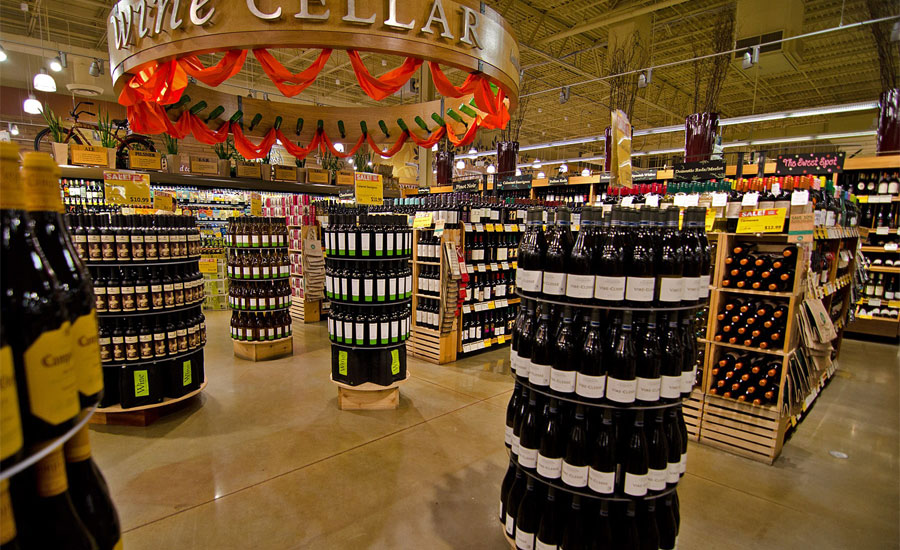Channel Strategies
Natural retailers show resilience against inflation concerns
Functional, diet-specific products resonate with specialty shoppers

Pictured Whole Foods Market store front in Oklahoma City.
Images courtesy of Whole Foods Market
When the local hardware store doesn’t have the carving set that he needs in the episode “At the Giant Mall” of the animated show “The Berenstain Bears,” Papa Bear and the family head to the new Big Bear Mall to visit the specialty hardware. Not listening to Mama Bears’ mall rules, Papa roams the mall only to end up at the lost cubs station. Deciding he’d rather go home than find the specialty hardware store, Mama points out that the store is only a few spots away from where they are.
Luckily for today’s specialty shoppers, the presence of specialty grocery sets like natural and organic retailers is much easier for shoppers to find. And while other retailers are seeing inflation impact spending, it has not had the same effect on specialty retailers, experts note.
“Inflation has caused concerns for shoppers and retailers alike over the last year, in addition to issues regarding the supply chain and the ever-changing pandemic health and safety policies,” says Haleigh Resetar, corporate communications specialist at SPINS, Chicago. “For specialty retailers, many of their shoppers are accustomed to purchasing products at a higher price margin than what they could find at conventional retailers because they are looking for products with certain label claims.”
Resetar notes that although products found within specialty retailers have seen the affects inflation, the impact is not to the same degree as conventional products.

Image courtesy of Whole Foods Market
“Looking specifically at beverages, in the natural enhanced channel these products have seen a rise of 1.9% in dollar percent change and a decline of 0.8% in unit percent change compared to the conventional channel, which has increased 7.3% in dollar percent change with a negative unit percent change of 1.9%,” she says. “That is a large difference in the amount of price increase happening in products in the conventional channel versus those found in the natural channel.”
This coupled with the specialty products offered at these retailers can serve as an opportunity for specialty retailers to reach a broader consumer base.
“The advantage for specialty retailers is that their consumer base is already willing to spend a certain premium for products that follow their dietary needs and sustainability ideals,” Resetar explains. “As shoppers continue to see prices go up in their go-to grocery stores, they may be drawn to specialty retailers to branch out and see how far their dollar can go at another outlet.”
Resetar adds that because specialty retailers are willing to carry smaller brands that haven’t gained a strong following, they can be trendsetters in terms of ingredients, flavors and packaging.
“For a conventional retailer, it might not be worth it to carry as many types of supplements, but for specialty retailers, this is an area that interests not only their consumers, but a growing number of new shoppers slowly integrating themselves into the health and wellness industry,” she says.
Tapping into consumers’ needs
Because specialty retailers typically carry a wide variety of brands and products, it allows retailers to appeal to consumers’ demands, including better-for-you or diet-specific products.
“The idea of better-for-you food, specifically in the snacking and sweets category is a growing consumer trend benefiting the natural and organic retailer segment who carry a wider variety of products that fall into this category,” Resetar explains. “While looking at SPINS Product Intelligence, we see that more shoppers are following specific diets. For example, gluten free continues to be a driver as a label claim throughout the store. Being nimble and responsive to the continued change in consumer preferences is key for specialty retailers to thrive.”

Image courtesy of Sprouts
The rising demand for functional food and beverages also remain present throughout specialty retailers, especially as more consumers look to get these functional benefits from food and beverages versus supplements.
“The convenience of having a preferred delivery vehicle for a functional ingredient is key to capturing the most shoppers,” Resetar says. “While we still see a lot of shoppers having a growing interest in supplements, some are opting to make it part of their diet through functional foods. Shoppers are looking to streamline their routines and are opting for the ease of often drinking their CBD, ashwagandha or cider vinegar as opposed to buying a separate supplement.”
This is evident by the shelf stable functional beverage category seeing a revenue total of $70.8 million, a 20.5% increase. Volume for this category also was up 16.1%, according SPINS data. The refrigerated juices and functional beverages also continues to perform well. With $412 million in total revenue, the category saw dollar sales increase 7% and volume rise 3.1%.
Other top beverage categories in natural channels are shelf stable soda and carbonated beverages, totaling $181.7 million, an 8.3% increase with volume up 6%; and shelf stable water, totaling $339 million, a 7.6% increase with volume up 0.7%, according to SPINS data.
“Specialty retailers are often the first to pick up trends in the natural and organic industry, because their shoppers are more likely to try new products and step out of their comfort zones,” Resetar says. “Most of the categories listed above have been seeing an enormous amount of innovation in ingredients and flavors over the last several years. A few years ago, if someone had seen the flavor ‘cactus rose’ in their seltzer water, they wouldn’t have been interested and instead opted for a more traditional flavor, but now cactus rose seltzer water is popular enough to be sold at major conventional retailers.
“Consumers of specialty retailers look to beverages as a way to supplement their nutrients they might not be getting from foods, and these categories listed above are being integrated with functional ingredients to make them more than something to quench the thirst,” she continues.
Yet, function-based products is the not the only way that specialty retailers is structuring its operations for consumers’ needs. Like many channels, natural retailers have seen the disruptive effect that eCommerce has had.
“eCommerce is a true disruptive force in the grocery industry right now,” Resetar says. “This goes back to the changing consumer preferences of not just what they shop for, but how they shop. The store is still very important and data shows that the part of eCommerce growing the most still involves the storefront. That means increase in store pickup and curbside delivery.
“Ship to home has actually declined as a percentage of ecommerce sales,” she continues. “Natural and organic retailers opting for an omnichannel experience are winning. A growing number of search and discovery is happening online, even when the purchase is in the store. Having your product content easily searchable on the website will be key to driving sales in store and online.”
Looking for a reprint of this article?
From high-res PDFs to custom plaques, order your copy today!





